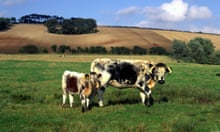Words most commonly heard on the streets of Hong Kong and Singapore such as “yum cha” and “wah” have been included in the Oxford English Dictionary’s latest update.
The terms – a type of Chinese breakfast and an expression of delight, respectively – enter, along with phrases such as “dai pai dong”, “ang moh” and “chilli crab” (an open-air food stall, a light-skinned person, and a regional delicacy).
Other new entries used by English-speakers in east Asia include “compensated dating”, a Hong Kong phrase that refers to a relationship provided in return for cash or gifts, and “Chinese helicopter”, a Singaporean who was educated in Mandarin and has little knowledge of English.
The update to the OED, which styles itself as the definitive record of the English language, includes about 500 new words and phrases from around the world, such as “vlog”, “bro-hug” and “Dad’s Army”.
The update brought an “alphabet of newly added terms from world English to explore”, said the OED senior assistant editor Jonathan Dent.
He cited “killer litter” – a Singaporean phenomenon of rubbish falling from a height – and “guanxi”, the Chinese term for personal connections that help facilitate business dealings.
The dictionary records south-east Asian influences on English stretching back to 1555.
The full list
Hong Kong
Char siu barbecued pork
Compensated dating relationship in return for cash
Dai pai dong open-air food stall
Kaifong neighbourhood association
Guanxi personal connections that aid business
Lucky money cash given in red envelopes
Sandwich class squeezed middle class
Milk tea local speciality
Shroff cashier
Siu mei type of dim sum
Yum cha type of breakfast
Wet market market for fresh fish, meat and other produce
Singapore
Ang moh a light-skinned person, westerner
Blur ignorant, confused
Chilli crab regional delicacy
Chinese helicopter person who speaks little English
Hawker centre food market with individual vendors
HDB public housing estate
Killer litter lethal falling rubbish
Lepak to loiter aimlessly
Shiok cool, great
Sabo to harm, make trouble
Sabo king a troublemaker
Sotong squid or cuttlefish
Teh tarik sweet tea with milk
Wah an expression of delight










